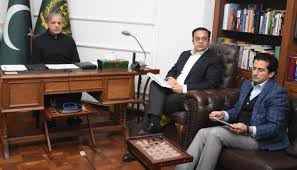Italy expected to install 12 GW of solar in 2023-24 period

Rome: The Italia Solare industry association said it expects exponential growth of PV installations in Italy over the next two years, driven mainly by the industrial segment.
“From about 1,000 MW last year, in 2022, we should almost double to about 2 GW,” Italia Solare President Paolo Rocco Viscontini told pv magazine at the recent Italia Solare Forum in Rome. “For 2023, a doubling from this year is very likely, and for 2024 a further doubling, so we are talking about 2 GW, 4 GW, and 8 GW.”
Industrial installations are growing at the fastest pace, followed by ground-mount solar installations.

Italian consultancy Elemens said 39% more permits were allocated in the first 10 months of this year than in the same period of 2021. Authorizations for PV installations reached 3,319 MW in the January-October period.
“There does not appear to be no obvious correlation with the simplifications, any effects of which have yet to be absorbed by the market: rather, the reasons seem to depend mainly on the pressure exerted by the large number of projects filed,” Tommaso Barbetti, a partner at Elemens, said during the Italia Solare Forum.
Elemens splits the Italian solar market into three areas: Sicily, Apulia, and the rest of the country. The first two regions have high potential and demand, while the third offers good potential. Elemens said that 39% of all projects larger than 1 kW had still not started the authorization process, a full year after the first connection request.
“The issue of connections to the grid is undoubtedly an important and critical point because the demands are very high, much higher than what the country will need,” said Viscontini.
Connection requests keep the grid busy – especially the high-voltage networks. But Italia Solare’s assessment of the new government is mixed. It has proceeded with changes in the ministries, as it has created the Ministry of Environment and Energy Security (MASE) to replace the Ministry of Ecological Transition.
“We certainly think the willingness of the new MASE minister, Pichetto Fratin, to dialogue is positive,” said Viscontini. “Less good was the draft of the budget law, particularly concerning the management of extra profits for power producers, which is once again wrong and confusing.”
Connections, authorizations, building rules, and finance are needed for the industry to exploit the country’s full potential. In general, analysts are asking for more clarity. Italia Solare is also demanding clear rules for agrivoltaic projects, especially when it comes to defining which projects are eligible for incentives.
“We hope that agrivoltaics can be done even without incentives, but this means facilitating approvals for plants that are not financially burdensome,” said Viscontini. “We need agrivoltaic projects that are not expensive and not complicated. Certainly, systems involving plants with particularly high structures relative to the land are more expensive and therefore need incentives.”





